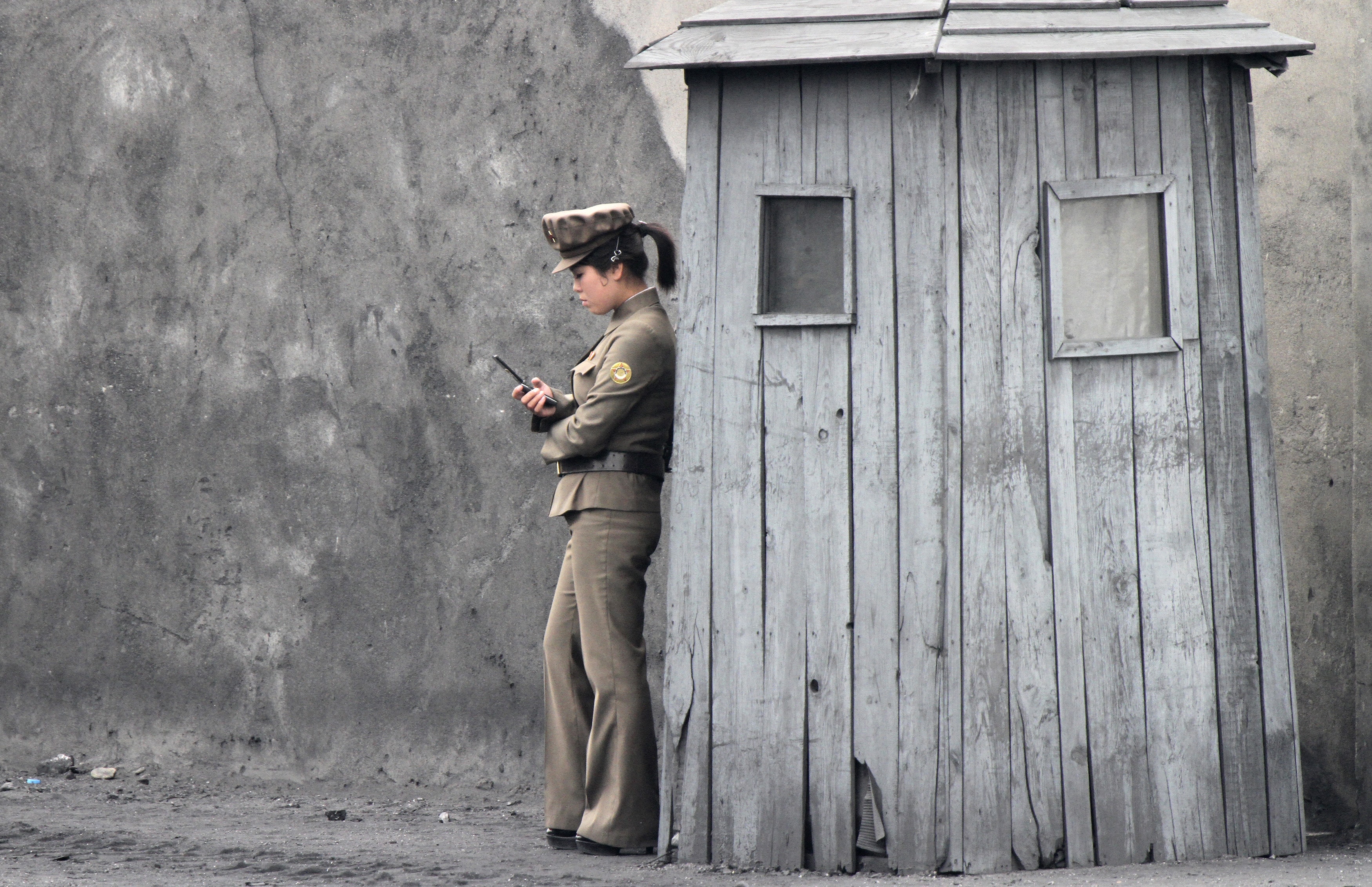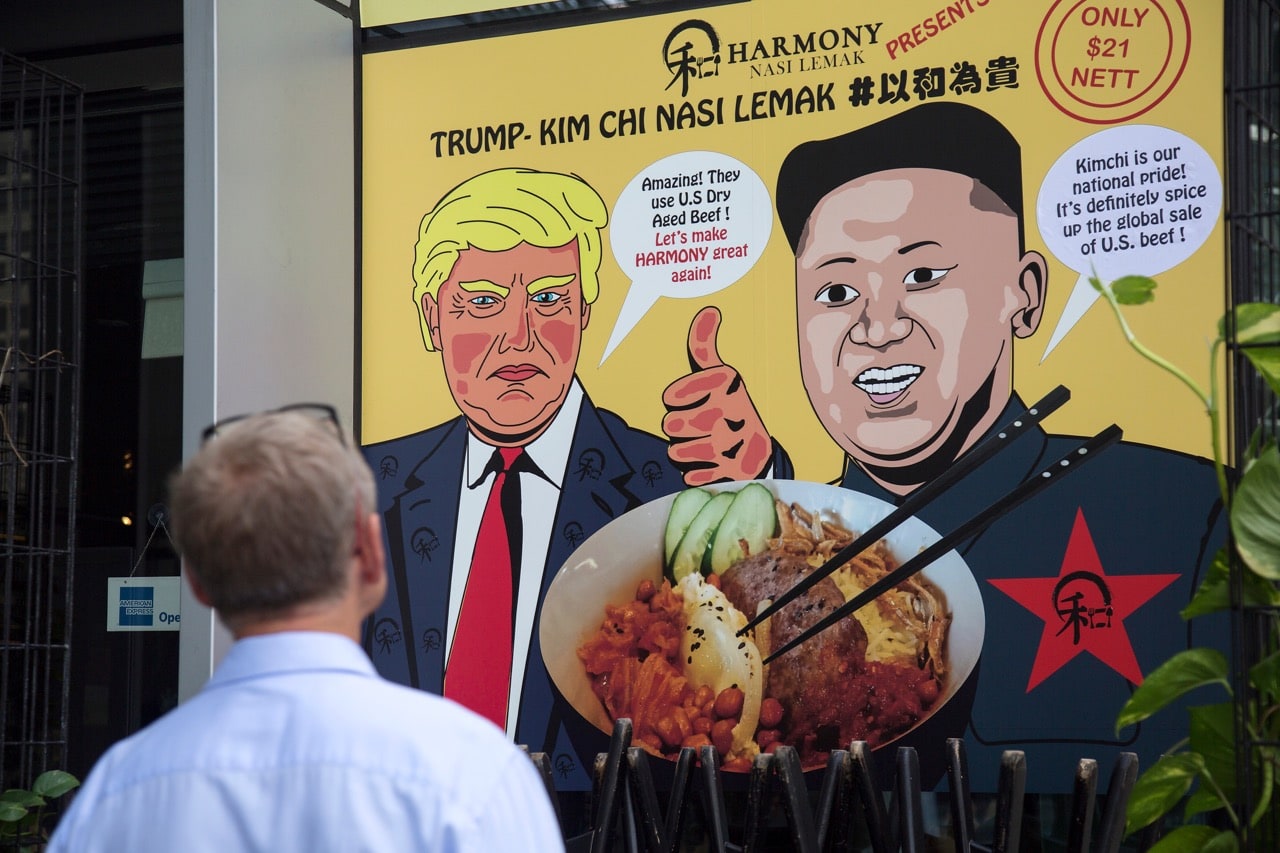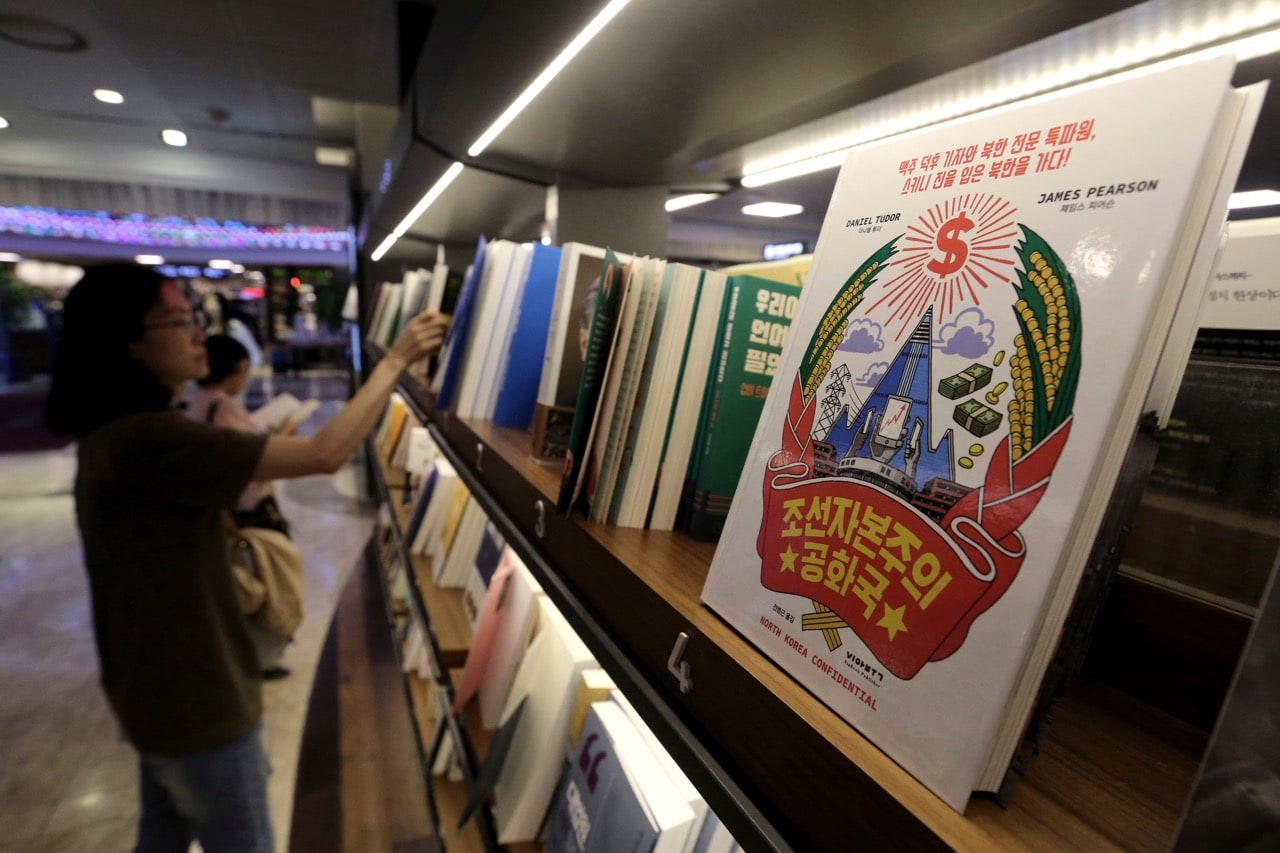Authorities are cracking down on people fleeing the country, and on those who share information with the outside world.
This statement was originally published on hrw.org on 9 February 2015.
North Korea is expanding efforts to control its borders and reduce information flows in and out of the country by harshly punishing people trying to flee the country, and hitting those aiding them with harsher sentences, Human Rights Watch said today.
North Koreans who escaped to South Korea but still have contacts in the north told Human Rights Watch that crackdowns on the North Korean border have intensified, including increased government efforts to monitor, track down, and punish unauthorized phone calls. In China, the government continues to detain and repatriate fleeing North Koreans.
“North Korean authorities are using brutal punishments to shut the door on people fleeing the country, and cracking down on those who share information with the outside world,” says Phil Robertson, deputy Asia Director. “Kim Jong-Un is trying to silence news of his systemic and pervasive rights crimes by going after the messengers, such as people with connections in South Korea or those who can help North Koreans flee there.”
The North Korean leadership has made clear the country must redouble its efforts to remain shut to the outside world.
“We must set up two or three layers of mosquito nets to prevent the poison of capitalism from being persistently spread by our enemies across the border into our territory,” said Kim Jong-Un, North Korea’s supreme leader, during a speech at the 8th Conference of Ideological Workers of the Korean Worker’s Party on February 25, 2014. “We also have to be active to block the imperialists’ plots for ideological and cultural invasion.” The “mosquito net” system Kim referred to was developed in the North to attract the inflow of foreign investment while blocking the infiltrations of foreign ideas, news, and culture.
Human Rights Watch recently interviewed nine North Koreans who still maintain regular communication with people in North Korea. Although the number of the interviewees is not large enough for Human Rights Watch to obtain comprehensive information on the conditions inside the country, the diversity in age, gender, hometown, social class, and personal experience of the interviewees suggests that their testimonies provide a credible and consistent picture. The interviewees provided consistent testimonies on North Korea’s crackdown in communications and border tightening, and describing how punishments have become harsher for those repatriated from China after trying to flee to South Korea and those who help them.
A male North Korean refugee who worked in North Korea’s bordering area as a broker, helping smuggle people out of the country on their way to South Korea, told Human Rights Watch that he left the country in August 2013 out of fear. “After Kim Jong-Un (took power), anyone caught talking to the South is sent to political prison camps,” said Kim Jin-Seok (pseudonym), who was caught talking on the phone with South Korea in 2012 and was only able to get away after paying 30,000 Chinese RMB (US $4,800) to the North Korean police. “There are more crack-downs both inside the military and outside. Soldiers and high ranking officials are also punished (if they let people cross to China or allow smuggling), so they don’t want to help anymore.”
Fear of the consequences prevents many people from continuing their work as people-smuggling brokers, according to the interviewees. “Everybody is scared and wants to show they live a proper life, at least to the outside world,” said Kim, who uses a pseudonym for fear of reprisals against her family.
In the summer of 2014, arrests of North Koreans transiting the country on their way to South Korea resulted in more than 40 escapees ending up in Chinese custody. Arrests of this sort have weakened underground people smuggling networks as Chinese authorities arrested many Chinese nationals who are ethnic Koreans accompanying the North Koreans on their way south.
Fear of arrest and attending consequences frighten many from the work of helping North Koreans escape, said Park Na-hyun (pseudonym), a female North Korean broker who runs a network that brings people to the South, smuggles money or products into the North, and arranges phone calls with family members there. Park told Human Rights Watch that her smuggling activities decreased by 80 to 90 percent over the last two years and it became harder to find people willing to work with her.
“I lost most of my contacts in North Korea and in China since 2013. It does not matter how much money you can pay or what contacts you have, many of the people I worked with are in political prison camps (kwanliso) in North Korea or going through trials if they are Chinese,” said Park.
Another male broker, Hwang Ji-Won (pseudonym), who left North Korea in 2009, said at least six of his colleagues in North Korea who helped people cross the border into China and escape through China to get to South Korea were caught and sent to political prison camps since 2013.
Political prison camps (kwanliso) are characterized by systematic abuses and often deadly conditions, including meager rations that lead to near-starvation, virtually no medical care, lack of proper housing and clothes, regular mistreatment including sexual assault and torture by guards, and executions. People held in there face backbreaking forced labor in logging, mining, agricultural, and other worksites. Work at these sites is characterized by exposure to harsh weather, rudimentary tools, lack of safety equipment, and high risks of workplace accidents. Death rates in these camps are reportedly extremely high.
Testimonies describe severe punishments
This is an escalation of severity in punishment because previously, people suspected of contact with South Koreans, or attempting to defect to South Korea, were frequently given lengthy terms in detention facilities known as kyohwaso (correctional, reeducation centers). These centers also subject inmates to forced labor, chronic food and medicine shortages, harsh working conditions and mistreatment by guards – but they are not as harsh as kwanliso camps.
According to the escapees, the North Korean government has also been actively tracking down unauthorized phone calls from cell-phones operating on Chinese service provider networks being used by people in the North Korean border areas to call to China or South Korea. “The phones have no signal in the cities anymore and I have heard they even have mobile technology to find the exact location of the caller even after you hang up,” said Kim. “I used to call from my living room, but later I had to go high up in the mountains in the middle of the night and I was scared to talk for more than a minute or two.” Park said she used to get calls from North Korea at all times of the day and talk for long periods, but now the number of calls she receives has shrunk by approximately 60 percent since 2012.
“North Korea feels threatened by news and images of the outside world seeping into the country and now is trying to reassert its control by going after people bringing in the information,” said Robertson. “Talking on an overseas phone call, or watching a foreign television show should not be considered crimes, but the government is tightening control through repression and fear.”
For North Korea’s government, such rights-abusing tactics are standard operating procedure – a situation which the international community has recognized in the past year. The United Nations Commission of Inquiry on North Korea published a report in February 2014 that found the government has been clamping down on the country’s borders since Kim Jong-Un’s succession to power and “systematically uses violence and punishment to deter its citizens from exercising their human right to leave the country. People who are forcibly repatriated from China are commonly subjected to torture, arbitrary detention, summary execution, forced abortions, and other sexual violence.”
The COI recommended North Korea should “abolish the de facto prohibition on foreign travel imposed on ordinary citizens. Decriminalize illegal border crossings and introduce border controls that conform to international standards (…) Cease to regard citizens repatriated from China as political criminals or to subject them to imprisonment, execution, torture, arbitrary detention, deliberate starvation, illegal cavity searches, forced abortions, and other sexual violence.”
“North Korea’s restrictions on fundamental freedoms like free speech, movement, and association evidently know no bounds,” said Robertson. “Pyongyang’s leaders are trying to drag their people back into a darker past, when their obedience was not disturbed by videos from Seoul, and the possibility of flight to South Korea.”



